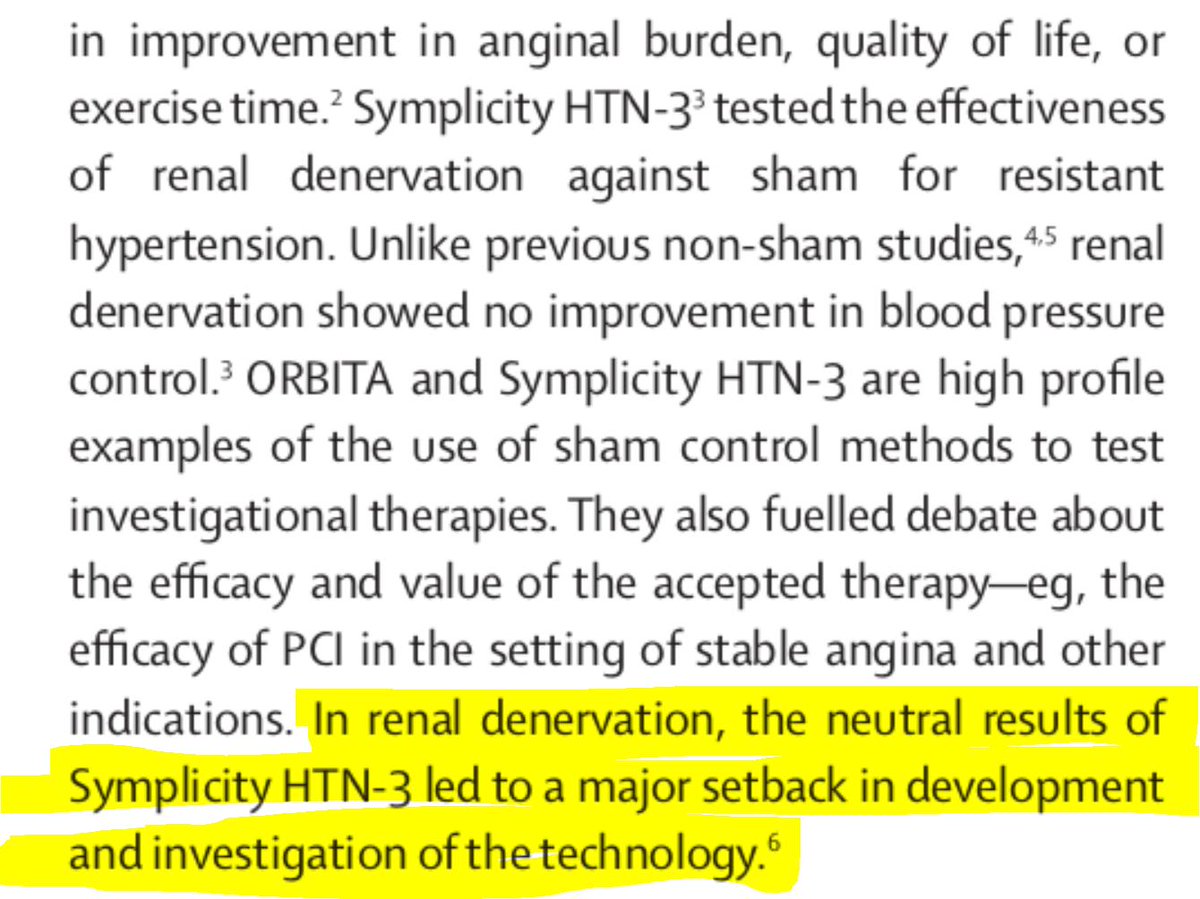I thank m'learned friend Prof Simon Thom for showing me the funniest paper of the year.
I will discuss it tomorrow.
What approach should I take?
#cardiotwitter
Now I can tell @rallamee that I am only listening to the Will of the People.
Here is why.
What would you like to do about your government wasting money?
What about falsely condemning people to the death penalty?
"Should your research be more biased, same, or less?"
and
"Should research be more polluted by the placebo effect or less?"
I avoid this approach, because while the Frank Harrells and the Janet Wittes of this world all understand exactly what is being said, many people don't, and skipping the understanding of WHAT one is opposing, is a disaster.
Off the cuff he said the following on the podium:

Randomization only balances things that happened BEFORE the trial.
Blinding balances things that happen AFTER the trial begins.
nejm.org/doi/full/10.10…
Neither the machine nor the humans knew which patient was which, so there was no chance of inadvertant tilting
First, the behaviour of the patient.
Second, the behaviour of the staff.
thelancet.com/journals/lance…
When the patient has undergone a BP-lowering procedure and the BP is (for example) markedly higher, what do you think they do?
How do you think they answered this question:
"If an ABPM average reading was unexpectedly high, what would you do?"
"If *I* as an individual doctor have failed to relax the patient in my office, that's my fault, and I want to do a good job, so I correct the situation...
Up to 5 mmHg of blood pressure lowering
10 mmhg of reminder value.
And 15 mmHg of (ahem) ditching unexpected office values.
That's your 30 mmHg magic denervation effect.
There is one shocking truth I have learned from the denervation escapade:
You and the patient put in all the effort, but are not rewarded with the truth.
Don't bother. Just make up the results. We know it will be positive.
Embezzle the money. Spend 1/3 on cars, 1/3 on women, and waste the rest.
You will save patients the effort and benefit the economy.
If I have at considerable cost worked out that 1 egg + 1 egg = 2 eggs, then when I move on to cows, I don't want to say that 1 cow + 1 cow = ஜ cows.
Balance the arms BEFORE the trial with randomization.
Balance the arms AFTER the trial begins, with BLINDING.
For a trial of procedures, we need a placebo procedure.
It really is no more difficult than that. Unless you want to sell ஜ bananas, in which case you will quite rightly make it more confusing.
Or did it test whether there WAS an improvement in exercise time arising from placing the stent versus placebo procedure?
In ORBITA we didn't tell them whether they had a stent, and certainly not how wonderful it was.
(Names withheld to protect the guilty)
Not only was it a waste of money, AND made holes in people for no gain in truthful knowledge, BUT ALSO it actively created FALSE INFORMATION.
The best use for the unblinded trial data is like that of the coal, to keep yourself warm in winter
8-(
One beautiful feature of a randomized controlled trial is that the data can regress to the mean all it likes.
We... don't... give a damn!
BOTH arms will regress. We only care about the difference between arms.
So, happy days!
That's backwards.
The benefits of any *proposed new therapy*, which we are going to persuade people to have, which will cost money and will make holes in them, must be justified ... blah blah.
(1) "trainable outcome of exercise time" has been exactly what we have used to identify effective drugs. Every single anti anginal has had to prove itself on this same endpoint, AGAINST PLACEBO, otherwise it heads for the trash can.
Doh.
Patients have angina.
It is a symptom.
It is experienced by the patient, not the doctor!
That means it is subjective!
Of the patients randomized, what proportion at the time of randomization had ONE OR MORE positive ischaemia tests:
We were expecting a slope.
But there wasn't a cliff.
There wasn't even a slope.
There was a great big nothing.
Think longer.
If >0.80 is less ischaemia, should there be less benefit or more?
Ah, yes, now you get the point.
Let's not talk up that tiny tilt of a slope as a "signal" now that we realise its the wrong way round.)
(a) UNBLINDED trials, the active arm patients underwent the denervation experience and the controls didn't, and there was a ~10mmHg difference in BP change between arms
Would you conclude:
Blinding means the PATIENT behaves the same between arms (in terms of tablet-taking, for example)
and the DOCTOR behaves the same between arms (in terms of which number to write down for the BP).
If you do blinding, it is all straightforward. All done in one go.
Their complications are no concern to the writers, apparently.
We say, truthfully,
"We do not know what arm you are going to be in, until the randomization."
"We don't know. As arranged, the people doing the procedure have not told us or you."
Each of you has the benefit of only one brain, unlike the article which has had several.
In your opinion, who is being "actively deceived"?
I'd better go quiet.
One piece of good news though. My next tweetorial has been sponsored by a well known car maker.
Bye-bye!

This is why we purveyors of a procedure must never be the ones to lead the discussion on the value of the procedure.
If the article-writers knew they were making ridiculous points, they would not do so, and certainly not in the Lancet.
































































